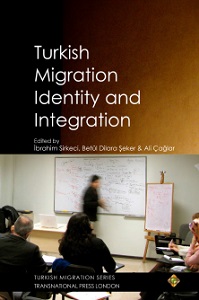Turkish Muslims in a German city: Entrepreneurial and residential self-determination
Turkish Muslims in a German city: Entrepreneurial and residential self-determination
Author(s): Sarah Hackett
Subject(s): Islam studies, Labor relations, Post-War period (1950 - 1989), Transformation Period (1990 - 2010), Present Times (2010 - today), Migration Studies, Politics and Identity, Identity of Collectives
Published by: Transnational Press London
Keywords: Turkey; Muslims; Germany; migrations; Bremen; industry; identity; integration;
Summary/Abstract: Germany’s Turkish communities have long been at the centre of vibrant political, academic and public deliberations. During the guest-worker years and the family reunification period that followed, and throughout their emergence as fixed attributes on German cities’ landscapes, Turks secured a firm place in debates in a Germany that was a reluctant and hesitant country of immigration. In recent years, they have been the prime focus of discussions and reflections on integration, citizenship, multiculturalism, segregation, social cohesion and the place of Islam in Germany. On the whole, the history of Turkish migration to and subsequent settlement in Germany during the post-1960s era has conventionally been associated with economic exploitation and hardship, residential difficulties and segregation, educational underachievement, confusion, uncertainty, shortsighted political strategies and ad hoc social provisions (Herbert, 1986; Abadan-Unat, 2011). Turks have gradually come to be perceived as the ethnic minority group least likely to achieve integration into German society, and as recognizable and clear Ausländer.
Book: Turkish Migration, Identity and Integration
- Page Range: 139-147
- Page Count: 9
- Publication Year: 2015
- Language: English
- Content File-PDF

